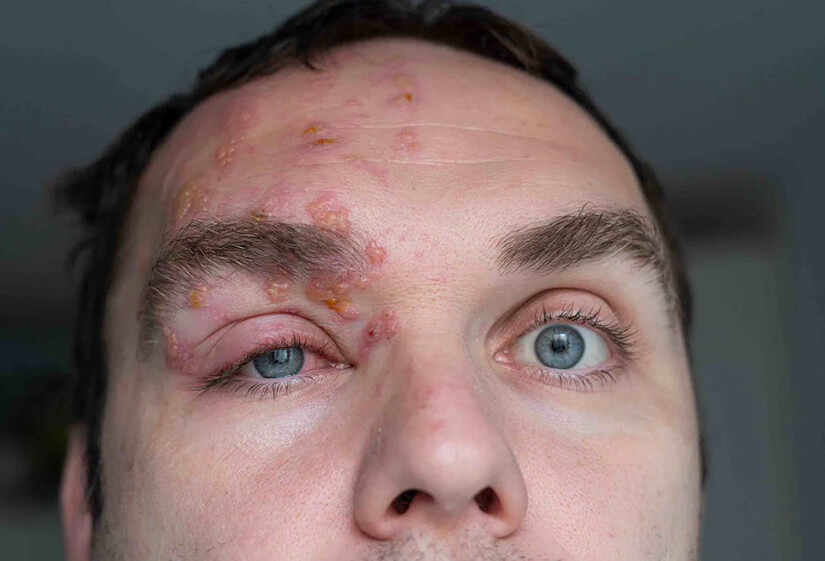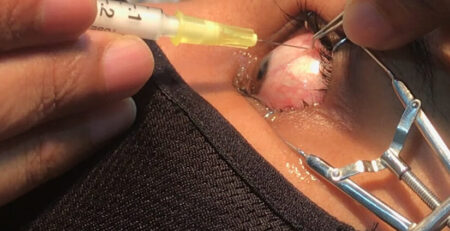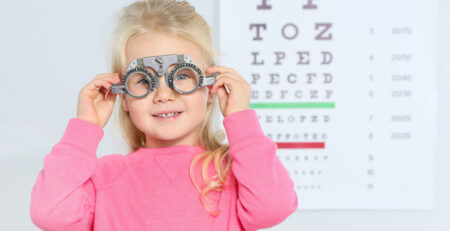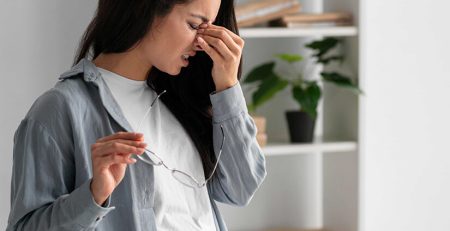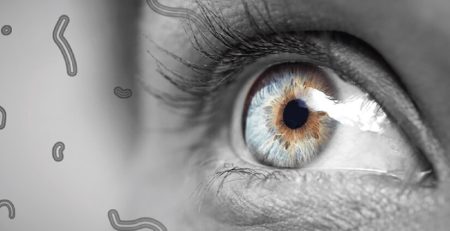Shingles in the Eye: Symptoms, Treatment, and Prevention
Have you recently noticed a painful rash or blisters near one eye? Maybe you’re brushing it off as a skin allergy or a heat rash. But if the pain is sharp, your eye feels irritated, or you’re suddenly more sensitive to light, it’s time to pause and pay close attention.
In India, many people mistake eye shingles for conjunctivitis or even a stye. But shingles in the eye is a different condition altogether, one that requires immediate care. As an eye specialist, I’ve seen how delays in shingles treatment can lead to long-term damage, even vision loss.
So let’s help you understand what this condition is, how it shows up, and what you can do to treat and prevent it.
What Is Shingles in the Eye?
Shingles in the eye, medically called Herpes Zoster Ophthalmicus, happens when the same virus that causes chickenpox (Varicella-Zoster Virus) reactivates later in life. This reactivation can affect the skin and nerves around the eye, and sometimes the eye itself.
Unlike regular shingles on the body, when it appears on your face and affects your eye, the risk of complications increases. And no, it doesn’t spread from person to person like a cold, but if you’ve had chickenpox earlier in life, this virus is already inside you. It can reactivate any time your immunity dips.
Why Does It Happen?
In simple terms, the virus that caused chickenpox in your childhood doesn’t leave your body. It hides quietly in your nerve cells for years. If your immunity weakens, due to stress, illness, age, or other medical issues, the virus can wake up and travel through your nerves to your eyes and forehead.
Some common triggers include:
- Long-term stress or fatigue
- Diabetes or autoimmune diseases
- Cancer treatment or organ transplants
- Being above 50 years of age
It’s not just older people who get it. Even younger adults and students with low immunity can develop shingles around the eye.
What Shingles Symptoms Should You Look Out For?
Shingles doesn’t start with a rash. In fact, the first signs often feel like the flu. If you catch the early signals, you can begin shingles treatment before the condition worsens.
Watch for:
- Pain or tingling on one side of your forehead or eye
- Redness or rash around your eyelid, forehead, or scalp
- Blisters that later scab over
- Swelling of the eyelid
- Sensitivity to light
- Blurred or reduced vision
- Red, watery eyes
- Burning sensation in or around the eye
If you notice any of these shingles symptoms, especially alongside fever or fatigue, don’t ignore it. Remember, early diagnosis can make a significant difference in your recovery. By being proactive and seeking medical help early, you can take control of your health and potentially prevent long-term complications.
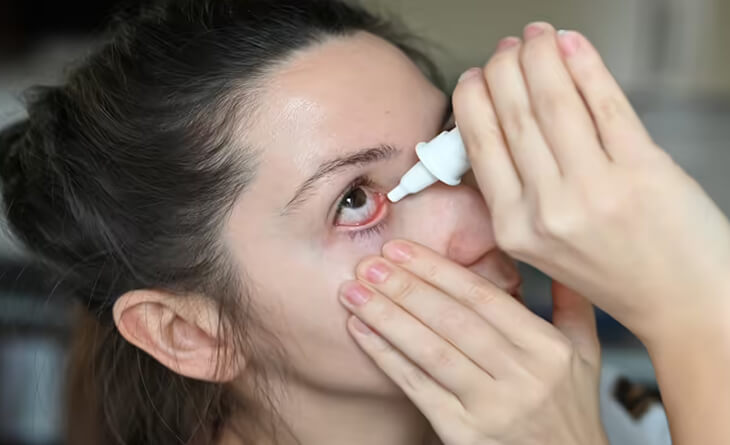
How Is Shingles in the Eye Diagnosed?
You might wonder, how can a doctor tell it’s shingles and not something else?
The process usually involves:
- A close physical examination of your face and eyes
- Checking your eye movements, vision, and cornea
- Fluorescein dye test to see if the eye surface is damaged
- In some cases, a swab of the blisters to confirm the virus
If needed, advanced imaging or a referral to a specialised eye hospital in Delhi may be advised to rule out deeper complications.
What Are the Treatment Options?
When caught early, ideally within 72 hours of the rash, shingles treatment can greatly reduce the risk of vision loss.
Your doctor may prescribe:
- Antiviral medication (e.g. acyclovir, valacyclovir): These fight the virus directly and speed up recovery
- Steroid eye drops or oral steroids: To reduce inflammation
- Pain relief: Medication for nerve pain or burning sensations
- Antibiotic ointments (if there’s a risk of secondary infection)
Depending on the severity of your case, your doctor may recommend follow-up visits at an eye hospital in Delhi. These visits are important to ensure that your eye is healing well and to address any potential complications early on. Rest assured, you will be in the hands of experienced professionals who are dedicated to your eye health.
Home & Lifestyle Tips to Support Healing
Medical treatment is key, but what you do at home can also help speed up your recovery and reduce discomfort.
Try these simple tips:
- Rest your eyes: Avoid screens or bright lights
- Apply cold compresses: This helps soothe pain and reduce swelling
- Stay hydrated and eat well: Boost your immunity naturally
- Avoid touching or scratching the blisters or the eye area
- Follow doctor’s treatment as advised
Remember, don’t self-medicate with over-the-counter drops without medical guidance. What works for allergies won’t work here.
Clearing Up Common Myths
Myth 1: Shingles only affects older people.
Truth: Even young adults with poor immunity or chronic stress can get it.
Myth 2: It’s just a skin issue—no big deal.
Truth: If it reaches your eye, it can lead to serious complications such as vision loss, corneal ulcers, or even glaucoma. This is why early diagnosis and shingles treatment are crucial.
Myth 3: Once it’s gone, it won’t come back.
Truth: Shingles can recur, especially if underlying health issues aren’t addressed.
When Should You See a Doctor?
Don’t wait for the rash to get worse. Seek help immediately if:
- You feel sharp pain or tingling around your eye or forehead
- Your eye looks red or feels sensitive to light
- You notice blurry vision or any change in sight
- A rash appears on one side of your face
- You’re over 50 or have health conditions like diabetes
Early shingles treatment not only reduces pain but also prevents long-term eye damage.
Book Your Eye Health Consultation with Dr. Anisha Gupta
If you or a loved one is showing signs of eye shingles, remember, you’re not alone. Dr. Anisha Gupta, with her years of ophthalmic experience and modern tools, is here to offer you precise care and lasting relief. Don’t delay, seek professional help and let us support you in your journey to recovery.
Whether you’re in Delhi or nearby, you deserve expert guidance. Reach out to book your consultation at a trusted eye hospital in Delhi, and protect your vision before it’s too late.
Your eyes aren’t just windows to the world; they’re mirrors of your health. If you’re noticing unusual pain or skin changes around one eye, trust your instincts. The right shingles treatment, started at the right time, can preserve your vision and prevent months of suffering.

